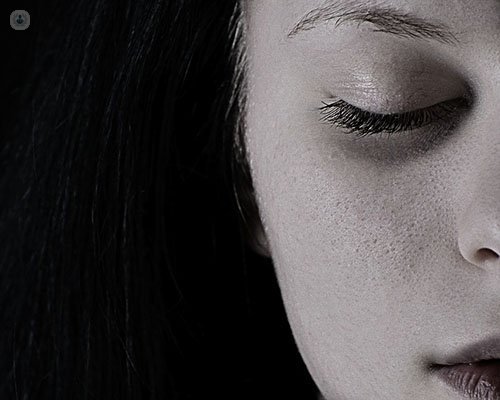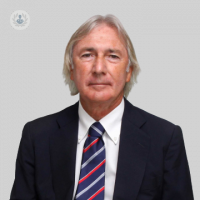Considerations for Depression
Written by:Depression is a clinical entity that goes beyond "a letdown" or "bad streak"; It is not a manifestation of a weak or capricious personality. It affects the overall functional capacity (work, family, home ...) and causes a high degree of suffering to the loved ones. This disease is common, affecting not less than 15% of the general population.
It is treatable and also with results remarkably effective. Clinical improvement is estimated at least 75% of the depressive symptoms. More complex is the therapeutic action to prevent further recurrences.

Depression symptoms
Sadness is only part of the depression, but sometimes the patient experiences other symptoms, including somatic (digestive disturbances, headache, tachycardia, muscle pains or spasms, etc.)
If sustained appear two or more of the following signs or symptoms for at least two weeks, it is advisable to seek help from a specialist in Psychiatry.
- Sadness, experience of emptiness, marked anxiety.
- Feeling of helplessness, disability, pessimism.
- Anhedonia (loss of the ability to feel pleasure).
- Feelings of hopelessness, guilt, low self - esteem.
- Lack of energy, fatigue unmotivated.
- Difficulty concentrating, making decisions. reduced mental agility.
- Difficulty getting to sleep. early awakening. hypersomnia.
- Loss of appetite or otherwise. accused weight changes.
- Thoughts, plans , or attempt suicide rate.
- Irritability. Inability to relax. Be "skin-deep".
- Persistent somatization.
People who suffer from depression do very differently. Speakers and vulnerability factors (constitutional) personal (base personality), Environmental own evolution of clinical depression. The therapeutic response is also different. The characteristics of "endogeneity" (somatic, psychic and intellectual) point to a higher biochemical weight training and development, as well as improved pharmacological response.
Many patients recall that in his childhood experienced remarkable levels of anxiety.
Depression treatments
Currently, the performance is based on:
- Establish a genuine therapeutic relationship. Empathy and trust.
- A precise knowledge of the psychological characteristics of the patient, as well as their personal context, family, professional and social
- A detailed information on the current depressive symptoms, previous history and previous treatments.
- Offer the patient a detailed information to facilitate the understanding of what happens, action to take, including psychotherapeutic dimension and / or pharmacological. Deadlines and forecasts.
- The current treatment of choice is a combination of cognitive behavioral psychotherapeutic approach with pharmacological support.
Research in neuroscience, in addition to the current extensive clinical studies in depressive invites a reasonable and positive expectation.
Edited by Noelia García Pino


